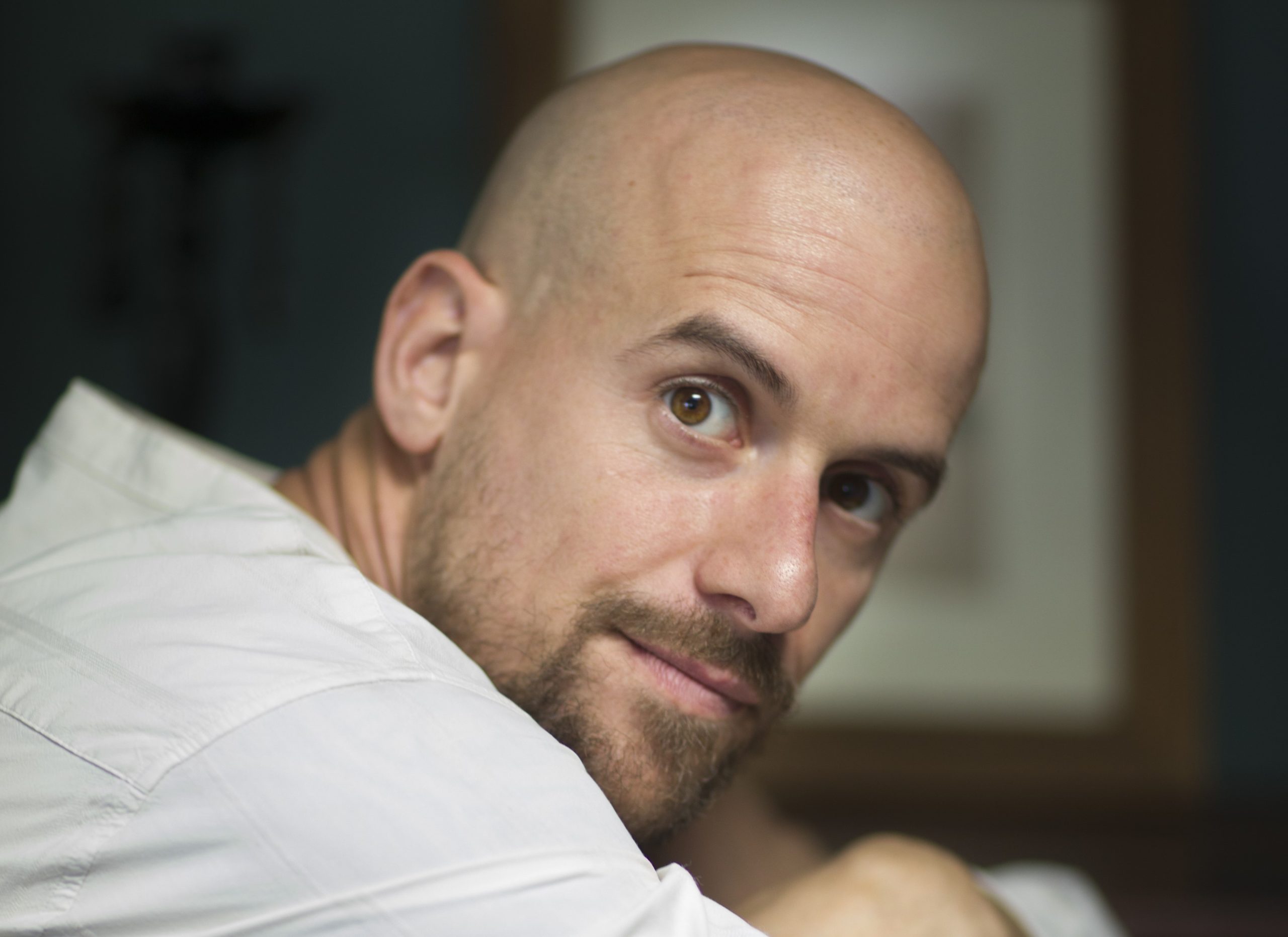Florient Jousse
Actor, playwright and director
April 2025

- Performing Arts
- Miami
“How does an insular territory culturally (re)construct itself from the voids left by History (colonization, slavery, and the repression of revolts)? What are the interstices navigated to exist culturally between dominant and marginalized cultures? In other words, is there a notion of transgenerational cultural resilience?”
Connected to the island of La Réunion since childhood, I was early on sensitized to what defines a Creole nation: its complex history, its language derived from a blend of converging cultures, and sometimes an insularity that is either endured or embraced, existing between imprisonment and refuge. Since the creation of Compagnie Tilawcis, I have been a modest connector, a messenger whose words must be devoid of emptiness. I both question and celebrate, in the plays we create with my team, the detours one takes to recognize and find oneself through others and one’s territory. Despite the meanders imposed by a dominant culture or the limitations we impose on ourselves—such as not imagining going beyond the horizontal walls of the ocean—I strive to highlight these significant ongoing resilience. This was evident from the very first creation in 2021 with Frénésies, an initiatory road-theater that explores the boredom of a young man with no horizon but the boundless ocean, whose destiny will lead him to the United States. After his journey through the continental country, he will come to understand the necessity of reconnecting with his homeland. Indeed, highlighting the dichotomy between gigantism and the intimate has been central to my work since I began writing. My fifth and upcoming creation, Flamboyants!, continues this exploration by bringing together islands on stage that, while not ignoring each other, remain unfamiliar. My residency in Puerto Rico resonates with this need for archipelagic connection.
Florient Jousse initially trained at the École Supérieure des Comédiens par Alternance (ESCA) in Asnières-sur-Seine. He then joined various theater companies, leading him to perform at venues such as the Théâtre National de Chaillot, to be in residence at La Chartreuse de Villeneuve-lès-Avignon, and to participate in the Festival d’Avignon nine times. In 2020, he founded the Compagnie Tilawcis in La Réunion. He became an associated artist at the Théâtre les Bambous, a conventionally subsidized venue, and later at the Centre Dramatique National de l’Océan Indien. He was a recipient of the European program Archipels.eu, which allowed him to tour his first play, Frénésies, across seven U.S. states.
In March 2023, our company performed in Puerto Rico. I was unfamiliar with this American island, but there, I encountered a musical form that felt oddly familiar. It was bomba, which bears a striking resemblance to the Réunionnais maloya, both rooted in a shared African foundation. It felt like a revelation. This experience sparked a need for exploration, with the goal of writing a documentary play conceived as an archipelago, reflecting on this question: how does an insular territory culturally (re)construct itself from the voids left by History (colonization, slavery, and the repression of revolts)? What are the interstices navigated to exist culturally between dominant and marginalized cultures? In other words, is there a notion of transgenerational cultural resilience?
I will seek answers through the means of reclaiming an intimate cultural anchorage of a people or community, dulled after shocks related to History. To support the core of the theatrical project, I plan to explore three research axes:
- The Original Language: As a Creole speaker, I understand that language can convey a particular worldview and open up a cosmogony. Puerto Rico is still named in the Taíno language as Borinquén, meaning “Land of the Valiant and Noble Lord.” I am intrigued to meet those who continue to preserve elements of this root vocabulary.
- Vegetal Imagery: I often draw inspiration from nature in my creations to enhance the depth of the story. I will investigate if there are any narratives surrounding endemic trees or plants.
- Music: I will seek to understand how bomba has been preserved and its relationship to contemporary society.
Before March 2023, I had never had the opportunity to visit the United States. For a long time, it seemed to me like a distant land of plenty, very removed from reality. This feeling was largely due to the fact that, like many others, I had been daily exposed to various stereotypical portrayals. Once the vastness of the continental country was processed, the cultural hegemony that has emerged from its diverse population remained, making it so that at some point, one inevitably feels a bit at home somewhere. Choosing to lay the foundations of my creation in the United States means tuning into a frequency whose history constantly reverberates through the rest of the world. An example of this multicultural resonance can be seen in Puerto Rico. This island is a crossroads of multiple influences at risk of being forgotten, much like La Réunion.
To conduct my research, I will attempt to meet Professor Awilda Rosa Santiago, a historian, and Yvonne Narganes, director of the archaeological research center at the University of Puerto Rico. I will follow the Taíno route guided by the Instituto de Cultura Puertorriqueña and will contact a Taíno representative, Agüeibaná Borrero, to discuss her endangered culture. In Peñuela, in the south, I will speak with the creators of the Flamboyant Tree Festival, an important symbol that heralds the arrival of summer in the Indo-Oceanic region. Finally, I will listen to the women’s collective Ausuba, specializing in bomba, to consider their presence on stage alongside other performers for the Flamboyants! project.
In partnership with

CENTRE DRAMATIQUE NATIONAL DE L’OCÉAN INDIEN
The Indian Ocean National Drama Center (CDNOI) belongs to a network of 38 cultural structures dedicated to the development of theatre in France. CDNOI develops its project supporting contemporary artistical creations in Reunion Island in connexion with the French territory, defending creole culture and language in theatre, between institutional and popular field.

Alliance Française de Porto Rico


